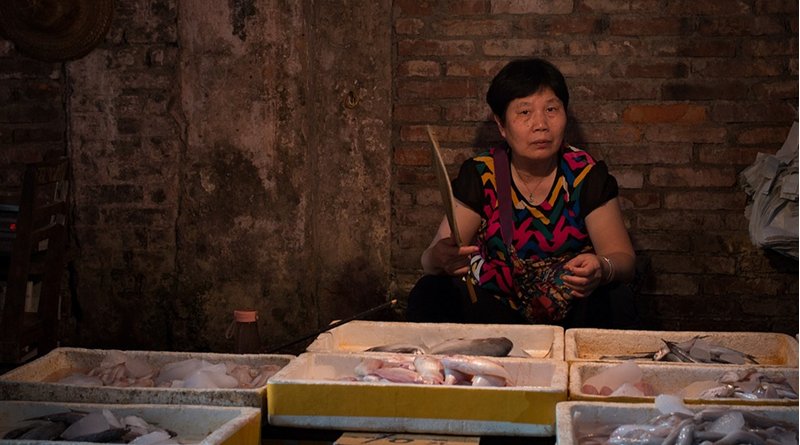By Opening Wet Markets, Beijing Threatens Itself And Rest Of World – OpEd
Despite the outbreak of COVID-19 still taking place in full force, Chinese authorities have began gradually opening the so-called “wet markets”1, where next to traditional animal produce and seafood one can also purchase exotic animal meat – these markets have often served as ground zero for different animal viruses being transmitted to humans.
At the moment, we are aware of the outbreaks of at least three viruses linked with Chinese wet markets:
1. 2004-2007 epidemic of the bird flu (H5N1);
2. 2002-2003 SARS epidemic;
3. Current COVID-19 pandemic.
Director of the National Institute of Allergy and Infectious Diseases Anthony Fauci believes the opening of these wet markets is irresponsibility on the side on Beijing.2 One cannot disagree with this, but despite justified criticism from scientists Beijing has decided to open up wet markets to customers, once again threatening not only the health of its own citizens, but also every person on Earth.
While Western countries continue doing everything in their power to stop the virus from spreading, including potentially damaging their economies, China is not willing to do as much as halt the work of a single industry. Therefore, a reasonable question comes to mind – why has the Chinese government, in spite of admitting that these wet markets have been the nests of infection for different viruses3, decided not to shut them down?
One of the arguments coming from Beijing’s apologists often has to do with Chinese traditional values, which allegedly largely consist of consuming exotic animals and using them in traditional medicine. Therefore, any issues expressed with these wet markets and their historical significance are being explained by westerners being closed minded or even racist towards the Chinese.
It is true that Chinese traditional medicine and cuisine have historically employed different exotic animals, however the phenomenon of wet markets is relatively new. The proportion of wild animals in Chinese cuisine is directly linked with the famine induced by the communist regime in the late 50s and early 60s of the previous century. The Great Chinese Famine was the consequence of the industrialization policies (known as the “great leap forward”) implemented by Chairman of the Communistic Party Mao Zedong. During this time, China’s agrarian community was forcefully industrialized, which resulted in the collapse of agriculture and the inability of the state to provide sustenance to its citizens.4
To combat the deadly famine, the Chinese government decided to allow its citizens to raise any animals, including exotic ones, for sale or consumption. Due to this being the only sphere which was privatized and not rigorously overseen by the authorities, the trade of exotic animals became a booming industry within the weakened economy of communist China.
Naturally, over time, the habits of Chinese citizens changed and increasingly often their daily menus began featuring wild animals. Only after the Chinese government was able to renew sufficient production of pork, beef and chicken did the popularity of using wild animals as food began to gradually decrease.
Thus, we can reasonably conclude that the use of exotic animals as food is not part of Chinese cultural heritage, as argued by Beijing’s apologists, but instead the consequence of widespread famine caused by the communist regime.
Although official statistics suggest that nowadays an increasing part of the Chinese public is against consuming exotic animals (97% of those interviewed in 2017 expressed such an opinion)5, wet markets remain popular among the Chinese people and they have proven to be quite a lucrative business opportunity. According to estimates by the Chinese government, in 2017 the turnover in these wet markets reached approximately 73 billion US dollars.6
This means that owners of these wet markets have had the opportunity to pressure officials and politicians of the communist party in order to lobby their business interests on the highest level. As a result of this lobby, Beijing, despite warnings from scientists and Western nations, has decided to take a risk and open the wet markets for customers, posing a significant threat to the health and lives of its own citizens along with everyone on this planet.
*Jānis Mākoņkalns, Latvian freelance journalist and blogger
[1] https://nypost.com/2020/04/13/chinas-wet-markets-back-in-business-despite-us-calls-to-shut-them/
[3] https://www.washingtontimes.com/news/2020/mar/18/china-knew-years-bats-caused-disease-yet-left-wild/
[5] http://www.xinhuanet.com/english/2020-02/25/c_138817298.htm
[6] https://bj-zhuanlishuju.oss-cn-beijing.aliyuncs.com/战略咨询报告/中国野生动物养殖产业可持续发展战略研究报告.pdf

